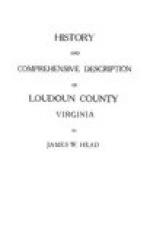One of them pronounced an address of welcome, and was amply rewarded by a grasp of the hero’s hand. As Lafayette ascended the portico of the court-house a little girl stepped forward, holding a wreath of laurel, and said:
Hail Patriot, Statesman, Hero,
Sage!
Hail Freedom’s
friend, hail Gallia’s son,
Whose laurels greener grow
in age,
Plucked by the
side of Washington.
Hail, champion in a holy cause,
When hostile bands
our shores beset;
Whose valor made the oppressor
pause,
Hail, holy warrior,
Lafayette?
She, too, was honored by a grasp of Lafayette’s hand as well as a kiss. After an oration by Ludwell Lee, the distinguished party returned to the hotel where they were entertained by a delegation of the ladies of the village, while another delegation superintended the spreading of a banquet on court-house square. Two hundred persons participated in this banquet. The numerous toasts were remarkable for loftiness of thought and elegance of diction. President Adams launched the following sentiment:
“The living records of the war of Independence like the prophetic books of the Sibyl, increasing in value as they diminish in numbers.”
Lafayette toasted General Bolivar, “who has felt true patriotism, and understood true glory.” Another toast was “To the memory of Washington, fresh as the passing moment, lasting as eternity.”
It is estimated that 10,000 persons witnessed the festivities. Lafayette, after a brief sojourn at the plantation of Ludwell Lee, departed for a visit to Madison at “Montpelier,” and Jefferson, at “Monticello.”
MEXICAN WAR.
Scarcely a generation had passed, during which the whole country passed through several years of financial distress, when the United States became involved in a brief successful war with Mexico, caused chiefly by the resistance of that country to the “annexation of Texas.” But it is not within the scope of this sketch to follow the history of that foreign struggle. It is sufficient to say that the people of Loudoun favored most heartily the annexation of Texas, and responded, indirectly of course, to the small quota of men and money required by the Government.
The entire United States force employed in the invasion of Mexico was composed of 26,690 regulars and 56,926 volunteers, not including those serving in the navy. The losses of men by death from disease and wounds were about 11,000, and the number killed in battle, about 1,500. The cost in money amounted to $150,000,000. The gain consisted of the cession of extensive territory stretching to the Pacific Ocean, several thousand miles of valuable sea coast and an immense bound of the United States into international power. In the accomplishment of this general result Loudoun sent many of her sturdiest sons, who served from the State in various bodies throughout the war.




